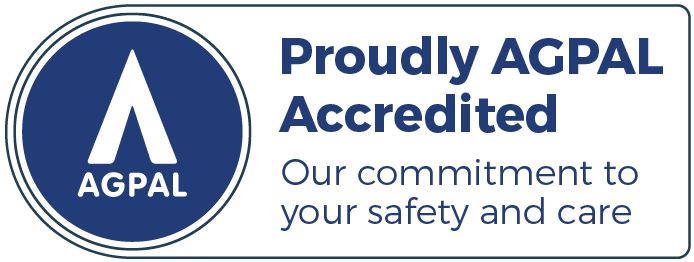Caring WOmen's Health Clinic in Mullumbimby
About Our Services
The doctors at Mullumbimby Comprehensive Health Centre provide advice on all aspects of women’s health, including women’s health check-ups, a full range of contraceptive advice and options, STD screening, advice on reproductive health, menstruation, endometriosis, menopause, bone density and blood pressure check-ups as well as preventative health care including cervical screening tests, breast checks and mammograms. Your GP can also provide antenatal care including before, during and post pregnancy support.
You can make a
booking with our women's health clinic in Mullumbimby by calling
(02) 6684 1511. We also assist with
skin health,
men's health,
family medicine,
chronic disease management,
travel vaccinations,
QML pathology,
osteopathy,
naturopathy and nutrition,
podiatry,
exercise physiology,
physiotherapy,
psychology,
mental health services and
preventative health.
Breast Cancer Detection
The risk of developing breast cancer increases with age. 75% of breast cancer cases occur in women aged over 50. The 5 year survival rate for women with breast cancer is 88%. It is important to have mammograms every two years when aged over 40. These are provided free by Breastscreen Australia to asymptomatic women. It is also important to regularly examine breasts after each period and to report any persisting changes to your GP. Often benign conditions such as cysts are detected, so not every lump means cancer. Early detection greatly increases the treatment options and ongoing health.
Cervical Screen Tests
The Cervical Screen Test (CST) is the new test to replace pap smears/pap test. The CST is more effective than the pap smear/pap test at preventing cervical cancers, because it detects the human papillomavirus (HPV). HPV is a common infection that can cause cervical cell changes that may lead to cervical cancer.
You will only need to have the CST every five years if your result is normal. CSTs can be self-collected or performed by a doctor or a nurse and will need to be booked in advance as a longer appointment. They are time price dependent on the length of time of the consultation.
CSTs are designed as a screening test for cervical precancerous conditions. They do not detect uterine or ovarian cancers and like many tests they are not 100 percent accurate. However having regular CST every 5 years can help prevent up to 90% of the most common type of cervical cancer.
Cervical Cancer Rates
Cervical cancer has decreased by over 33% since organised pap smears began in 1991 in Australia at two-yearly intervals, with the CST now recommended every five years. CSTs are available from your regular doctor or one of the women’s health accredited practice nurses. We have a computerised recall system to remind you when your next check is due, the practice also participates in the national recall register.
Ovarian Cancer Screening
The risk of ovarian cancer increases if you are over 50, have a family history of the disease, carry changes in the BRCA1 or BRCA2 genes or experience early onset of periods and late menopause. Additionally, the risk is higher for those who are childless, face infertility or have never used the combined oral contraceptive. Ovarian cancer often presents at a late stage and currently there is no proven method of prevention.
It is important to have a regular CST and biannual examinations of the pelvis and to report any changes such as pelvic pain, bloating, abnormal bleeding and lethargy. Pelvic ultrasound is used for diagnosis and your GP will refer you to a sonographer if required.
Your Test Results
Your doctor will advise when they expect the results of any tests or radiography to arrive at the practice. You will need to make a follow up appointment with your doctor to discuss your results.
Reception staff cannot give results out over the phone or via email. Please book an appointment with a GP to discuss your results. This may be in person or via telehealth.
We appreciate your understanding in this matter.
Frequently Asked Questions
-
How is a Cervical Screen Test performed?
The Cervical Screening Test for most people is a simple procedure that checks for the human papillomavirus (HPV), a common infection that can lead to cervical cancer. This is done by a doctor or nurse or you can do it yourself as a self collection swab.
-
Why is it important for women to prioritise their health?
Prioritising health is essential for women because it enables early detection and management of potential issues. Regular check-ups and screenings help identify conditions like breast cancer, cervical cancer and osteoporosis early on, which can significantly improve outcomes. By staying informed and proactive about their health, women can better manage their overall wellbeing and reduce the risk of developing serious health problems.
-
What are some key health screenings women should consider?
Women should consider a range of health screenings depending on their age and risk factors. Important screenings include regular cervical screening tests, breast exams and mammograms, bone density tests and blood pressure checks. Routine STD screenings and reproductive health assessments are also important. These tests help monitor health, detect any issues early and provide an opportunity to discuss any concerns with a healthcare provider.
Site links
resources
MEDICAL Services
ALLIED HEALTH
Trading Hours
- Monday
- -
- Tuesday
- -
- Wednesday
- -
- Thursday
- -
- Friday
- -
- Saturday
- -
- Sunday
- Closed
Contacts
ABN: 94 534 997 304
AGPAL Accredited Practice









